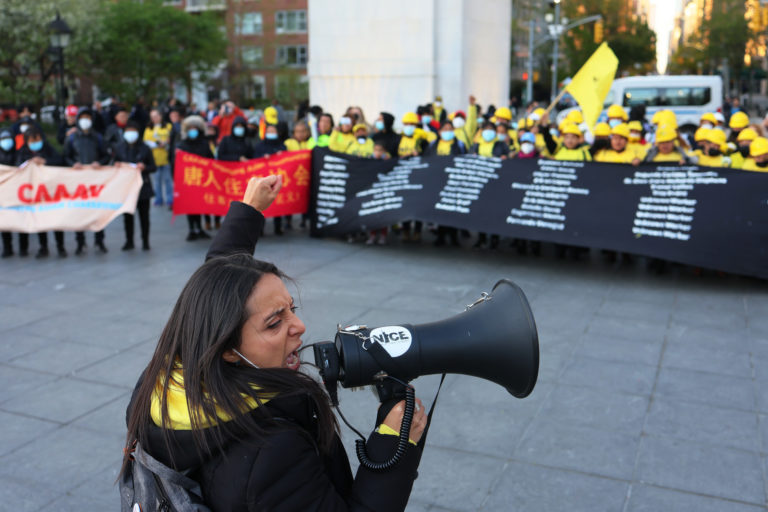On the cusp of an ideological majority for the first time in over half a century, the U.S. Supreme Court begins its new term today, again – like in 2016 – with an 8-Justice lineup. While the fate of the current nominee is uncertain, the Court is slated for what some commentators in the New York Times have called a “meat-and-potatoes” or “quiet” docket, suitable for “the case books” rather than “the history books.” Among those cases, though, is Mount Lemmon Fire District v. Guido, addressing the application of the Age Discrimination in Employment Act to small state-subdivision employers. The Court will hear oral argument in Guido today.
Sunday was a big day in Sacramento, as Governor Brown, for the final time after sixteen years in office, alternately signed and vetoed major bills that addressed a range of issues including safe-injection sites, tavern hours, and immigration. On the employment front, Brown vetoed AB 3080, which would have prohibited employers from requiring private arbitration in employment-related disputes. Brown noted that the bill plainly violates federal law, just as he believed it did in 2015 when he vetoed a similar effort. Another veto hit AB 1870, which would have extended to three years the current one-year deadline for filing a harrassment or discrimination claim with the state.
But Brown signed two bills involving nondisclosure agreements. California law will soon prohibit employers from mandating secrecy – via nondisclosure agreements – in settlements and disputes involving sexual harrassment, discrimination, and assault. Senator Connie Leyva (D-Chino) authored SB 820 after the emergence of the #MeToo movement; Leyva aims to empower victims and expose serial offenders in order to endanger their employment in positions of power. The law is effective January 1, 2019. Also signed into law was Senator Hannah-Beth Jackson’s (D-Santa Barbara) SB 1300, which prohibits employers from forcing new employees or those seeking raises to sign nondisclosure agreements; the law still allows NDAs as part of settlements or severance packages.
California is also making waves for another parity-focused law imposing gender quotas on corporate boards of publicly traded companies. By the end of 2019, California corporations must seat at least one woman on their board of directors; by the end of 2021, larger boards may need up to three women. This innovative law may need to withstand a host of legal challenges, including under the First and Fourteenth Amendments. SB 826’s author Senator Jackson believes that securing a place of power for more women should have a trickle-down effect that will reduce workplace discrimination and harrassment.
This weekend’s big Tesla news includes the Securities and Exchange Commission’s settlement with Elon Musk for his fraudulent and shareholder-misleading tweet referring to a supposed private buyout of the corporation. Musk must step down as Chairman of the corporate board, but he can remain as CEO, and thus remain in command of day-to-day operations. Musk will pay a relatively meager 20 million-dollar fine. (His Tesla stake is valued at 8.9 billion dollars.)
Meanwhile, Musk is rolling out an internal testing program for self-driving vehicles, and has been seeking employees to do the testing. Last week Musk offered workers up to $13,000 in savings on the technology, should they purchase it, in exchange for testing it out and providing 300 to 400 hours of feedback with the “Autopilot Team.”
Tesla is in the midst of fighting actions from the National Labor Relations Board in response to firing of employees allegedly in retaliation for organizing activities. The NLRB regional director further alleges that Tesla’s strict confidentiality policy violates the NLRA because it effectively bars discussions of the workplace. Bloomberg’s Josh Eidelson relays the events of the NLRB adjudication, held in a regional office in Oakland, CA, where the Administrative Law Judge acknowledged that likely whatever she decides will dissatisfy someone; the issues may proceed through years of appeals. In the Verge, Elizabeth Lopatto explores what the outcome of this adjudication might mean for unionization efforts throughout Silicon Valley, considering that Tesla is a car company run much more like a tech company.
In 2019, minimum wage workers in Montana will see a raise from $8.30 an hour to $8.50, consistent with inflation rates per the CPI-U. Governor Steve Bullock announced the increase, which will affect about 1.8% of the state’s workforce. Bullock led the ballot initiative for an annual inflation adjustment of the wage when he was a private citizen, in 2006.
Today in Canada, Alberta’s minimum wage will rise from $14 an hour to $15 an hour. Increases have been yearly since the National Democratic Party became the province’s majority government in 2015.
October 1 marks the 99th anniversary of a massacre of African American sharecroppers seeking better pay and collective power. On September 30, 1919, in rural Arkansas, around 100 black community members – sharecroppers on white-owned land, mostly – gathered in a local church to convene a meeting of the Progressive Farmers and Household Union of America. They intended to discuss responses to the exploitative conditions of the cotton industry. As a defense against the rising tide of white violence directed at black communities, and against the rising suspicions of a Communist insurrection that would capitalize on, and stoke, racial tensions, the union stationed armed guards at the door. A skirmish at the door resulted in the shooting death of one white man and the injury of another. The next day, 1,000 whites gathered to destroy the black community, killing at least 200 people in Elaine, Arkansas, and ransacking homes throughout the area.






Daily News & Commentary
Start your day with our roundup of the latest labor developments. See all
December 19
Labor law professors file an amici curiae and the NLRB regains quorum.
December 18
New Jersey adopts disparate impact rules; Teamsters oppose railroad merger; court pauses more shutdown layoffs.
December 17
The TSA suspends a labor union representing 47,000 officers for a second time; the Trump administration seeks to recruit over 1,000 artificial intelligence experts to the federal workforce; and the New York Times reports on the tumultuous changes that U.S. labor relations has seen over the past year.
December 16
Second Circuit affirms dismissal of former collegiate athletes’ antitrust suit; UPS will invest $120 million in truck-unloading robots; Sharon Block argues there are reasons for optimism about labor’s future.
December 15
Advocating a private right of action for the NLRA, 11th Circuit criticizes McDonnell Douglas, Congress considers amending WARN Act.
December 12
OH vetoes bill weakening child labor protections; UT repeals public-sector bargaining ban; SCOTUS takes up case on post-arbitration award jurisdiction